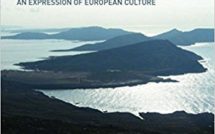

Joseph Grieco is a very eminent Professor of Political Science at Duke University. Over the years, he has extensively contributed to the scholarly debate on theories of international relations, issues of international political economy, and problems of international conflict, producing relevant publications which have also attracted the attention of EU studies scholarship. In his recent book, Introduction to International Relations, published by Palgrave, together with Michael Mastanduno and John Ikenberry, he provides tools for understanding current problems and tracing future perspectives. For EuropeNow, he analyzes actual events in Europe and tries to launch some ideas on the future of the EU project, towards the implications of Brexit and the Trump era.
—Daniela Irrera for EuropeNow
EuropeNow It was clear, since the very beginning, that Brexit is a big mistake. It immediately had political consequences on the British government and on its successive relations with European partners. As an American scholar of IR, what was your first reaction to Brexit and what it is your opinion now, after some months?
Joseph Grieco I was very surprised by the outcome of the Brexit vote. Yet, as an outside observer, I’m reluctant to say at this early point that the decision to exit was clearly a mistake. The vote, by all accounts, was free and fair and came after a reasonably full public discussion within the UK of the costs and benefits of remaining in the EU, as opposed to exiting. However, I have been surprised by a couple of developments since the referendum. First, I was surprised to learn that the David Cameron government had not done much preparation for a vote in favor of Brexit. It seems like the successor government of Theresa May has had to build institutional capacity within the government for the transition talks, while at the same time developing a strategy for doing so. Second, I’ve been surprised at the turbulence that appears to characterize her Cabinet and the larger UK government as to what they would like to accomplish in negotiations with the EU in terms of a post-Brexit UK association with the Union. Third, I’ve been struck at how complicated the separation will be—the range of issues and points of contact that need to be revised are very extensive. Fourth, although I think the UK has a flexible economy and is likely over some medium-term period (for example, a decade or so) to adapt well to Brexit, I’ve been impressed at how many unforeseen transition costs have been identified, from the termination of EU funding for important UK research universities to the availability of seasonal labor for the UK agricultural sector.
EuropeNow Reading Trump’s first declarations—and also his tweets—it is clear that the US president prefers to re-establish good relations with Russia, and he also cautiously looks at other political actors, like China. Do you think the EU will play a secondary role during the Trump era, and how will this affect transatlantic relations?
Joseph Grieco I agree that the Donald Trump administration is likely to entertain the idea of detente with Russia, and investigate opportunities for cooperation, especially in terms of coordinating a military campaign against Islamic State. I would not be terribly optimistic that either effort will go very far, since the likelihood is that Vladimir Putin will want more from the exchange than Trump is willing to pay. In particular, Putin will want Trump to accept Russia’s incorporation of Crimea and explicit statements that NATO and the EU will not be extended to Ukraine and Georgia. Putin might even see if the Baltics are negotiable. Trump won’t feel he’s getting enough in return, especially in light of the uproar such a deal would incite in the United States and with our allies, and the prospects then will be for a loss of momentum towards warmer relations. Regarding the EU, I agree that there is likely to be a period of relatively less attention devoted to U.S.-EU ties by the Trump administration than might have been the case had Hillary Clinton won the election. My guess is that Clinton might have tried to resuscitate talks on the Trans-Atlantic Trade and Investment Partnership (TTIP); I don’t see Trump doing that.
EuropeNow The rising of terrorist attacks in Europe, the never ending conflict in Syria and the worsening of democratic conditions in Turkey, make scholars think of a return of realism as a tool to understand current international affairs. Do you believe there is no more room for integration processes and for the strengthening of political unions?
Joseph Grieco Realism is certainly helpful in making sense of the recent return of great-power tensions. However, many important aspects of world politics today require close attention to domestic institutions and political processes—I’m thinking of the revolt against globalization and the rise of populism in Britain, the USA, France, Italy, and the Netherlands. As to neo-functional integration theory, I think it helps us understand the moderate increase in responsibilities and capacities of the European Central Bank has attained during the past five years, and in particular its growing ability to carry out Europe-wide monetary policy through open-market operations. We will have to see, however, if ECB monetary expansion will be sufficient to move countries such as Spain, Italy, and France on more robust trajectories of economic growth and a return to socially more sustainable levels of unemployment.
EuropeNow Given what we said, especially the influence of Brexit and the future “Trump doctrine,” do you think the EU project will be severely affected and is destined to decrease?
Joseph Grieco I’m not sure I would say that U.S. policy under Trump will by itself have a large material impact on the future of the EU. That future will be determined more by what the EU countries themselves do to reduce unemployment in such countries as France, Spain, and Italy. We are definitely witnessing the rise of anti-EU political forces in those three countries as well as in the Netherlands. My strong guess is that if, in Italy, for example, the political choice is between staying in the Eurozone and losing much of northern Italy’s industrial base, then Italy will exit the Euro. If it does so then France almost certainly will do the same. I don’t see a Eurozone without those two countries. While I don’t think the collapse of the Eurozone translates immediately into the destruction of the larger EU project, it surely would set back European cooperation. The key to Europe’s political future is clearly to get the Continent back on track towards widely shared growth and employment.
Joseph Grieco concentrates on theories of international relations, issues of international political economy, and problems of international conflict. He is the author of Cooperation Among Nations: Europe, America, and Non-Tariff Barriers to Trade, and Between Dependency and Autonomy: India’s Experience with the International Computer Industry; and the co-author (with G. John Ikenberry) of State Power and World Markets: The International Political Economy. Articles and notes by him have appeared in Journal of Conflict Resolution, International Studies Quarterly, Security Studies, Review of International Studies, the American Political Science Review, International Organization, the Journal of Politics, and World Politics. His teaching interests include theories of international relations and issues of international political economy.
Daniela Irrera is an Associate Professor of International Relations and Global Civil Society at the Department of Political and Social Sciences of the University of Catania, where she also serves as Erasmus Coordinator.
Published on September 6, 2017.




